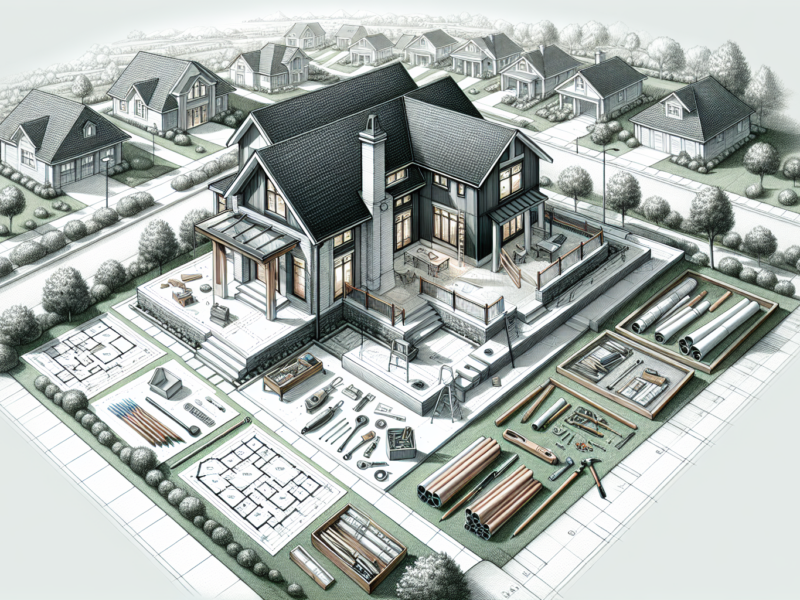Planning a home addition can be an exciting yet daunting task. Ensuring that every detail is accounted for can make the process smoother and more rewarding. This article provides a comprehensive checklist to help you successfully navigate your home addition project.
Adding an extra room or expanding your current living space can significantly enhance the value and functionality of your home. However, the key to a successful home addition lies in meticulous planning and attention to detail. This guide will walk you through essential steps, from initial considerations to final touches, ensuring that your project is both efficient and effective.
Define Your Goals And Budget
Before you dive into any home addition project, it is crucial to clearly define your goals and establish a realistic budget. Understanding what you hope to achieve with the addition, whether it’s extra living space, an additional bedroom, or a new office, will help guide your decisions throughout the process. Setting a budget early on will also prevent overspending and ensure that you can afford the entire project from start to finish.
Take time to research potential costs associated with similar projects. Consulting with contractors and obtaining multiple estimates can give you a clearer picture of the financial commitment required. Additionally, consider any long-term financial implications, such as increased property taxes or maintenance costs, which may arise as a result of the addition.
It’s also important to consider the return on investment (ROI) when planning your home addition. Some projects, like adding a bathroom or expanding the kitchen, typically offer higher ROI than others. Research which additions are most valued in your local real estate market. This information can help you prioritize your goals and allocate your budget more effectively, ensuring that your investment not only improves your living space but also potentially increases your home’s resale value.
Obtain Necessary Permits And Approvals
A critical step in any home addition project is securing the appropriate permits and approvals. Depending on your location and the scope of your project, you may need various permits from local authorities or homeowner associations. Failing to obtain these can lead to costly delays or even legal issues down the line.
It’s also wise to familiarize yourself with local building codes and regulations. These guidelines will dictate many aspects of your project, from structural requirements to energy efficiency standards. Working closely with experienced professionals who understand these regulations can ensure that your project meets all necessary criteria.
Consider hiring a professional permit expediter if you’re facing complex zoning issues or if you’re unsure about navigating the permitting process. These experts can save you time and potential headaches by managing paperwork, following up with local authorities and ensuring all necessary approvals are obtained in a timely manner. While this service comes at an additional cost, it can be invaluable in preventing delays and ensuring your project stays on track from a legal and regulatory standpoint.
Select Reliable Contractors And Suppliers
Choosing the right team to execute your home addition is pivotal to its success. Look for contractors and suppliers with proven track records and strong references. Quality workmanship and reliable materials will ultimately determine the longevity and satisfaction of your new space.
Consider seeking recommendations from friends or family members who have completed similar projects.
Reading online reviews and checking credentials can also help you make informed decisions. Always obtain written contracts detailing the scope of work, timelines and payment schedules to avoid misunderstandings.
Plan For Disruption During Construction
Home additions often come with temporary disruptions to your daily life. Anticipating these inconveniences can help you prepare mentally and logistically. For example, if you’re adding a kitchen extension, plan for alternate cooking arrangements during construction periods.
Clear communication with your contractors is essential in managing expectations and minimizing disruptions. Establishing a regular schedule for progress updates can keep you informed about timelines and any potential delays. Additionally, ensure that safety measures are in place to protect both workers and residents throughout the project.








